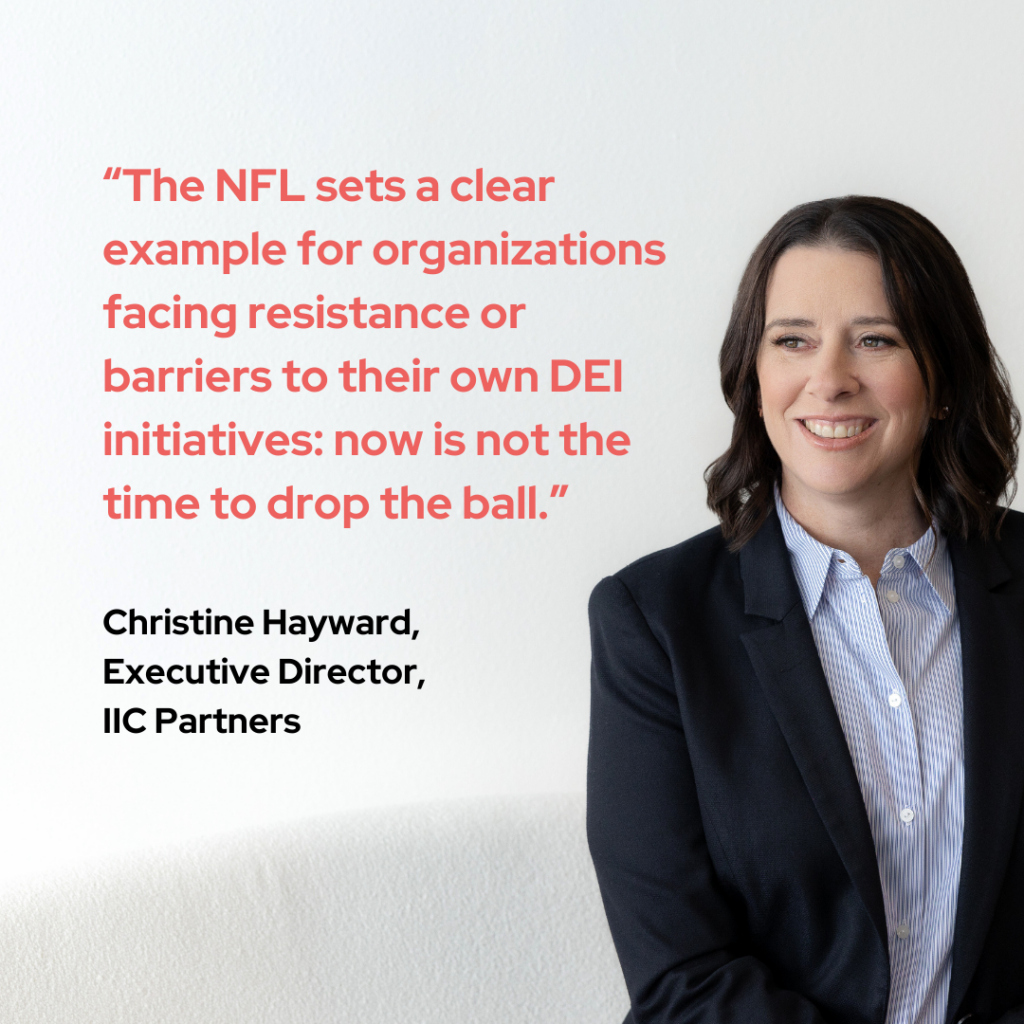Why NFL’s Historic Increase in Minority Coaches Matters for DEI
19 March 2024
The National Football League (NFL) has made history by hiring more Black coaches for the new season than ever before. Six out of the 32 head coaches in the league are Black, representing a significant increase from the previous years and a positive trend in diversity and inclusion. This achievement is especially remarkable considering the challenges and backlash other industries and sectors face in their efforts to promote and support DE&I.
The NFL has not always been a leader in this area. For decades, the league struggled to provide equal opportunities and representation for minority coaches even though more than two-thirds of the players are Black. The Rooney Rule, implemented in 2003, requires teams to interview at least one minority candidate for head coaching and senior football operation positions. However, it is often criticized for being ineffective and tokenistic. Many teams complied with the rule only as a formality, without seriously considering diverse candidates. As a result, the number of Black head coaches remained low and plummeted to just three in 2019.
In the past few years, however, the NFL has taken steps to enhance and enforce the Rooney Rule, as well as to create more pathways and programs for minority coaches to advance their careers. For example, in 2022, the league expanded the rule to include women “as a part of the minority candidate definition,” increased the minimum number of minority candidates to be interviewed, and incentivized teams to develop and hire minority coaches with draft picks.
The league also established mentorship and networking initiatives, such as the Bill Walsh Diversity Coaching Fellowship and Nunn-Wooten Scouting Fellowship, to provide more exposure and education for minority coaches. The league has also received both support and pressure from the owners and players, who demanded more diversity and inclusion in the leadership positions, especially in the wake of the social justice and equality movements sparked by the killing of George Floyd.
These efforts have paid off. The NFL has seen a surge of coaches with diverse backgrounds being hired for the 2024 season. Among them are Atlanta’s Raheem Morris, who was the defensive coordinator of the Los Angeles Rams and led them to the playoffs with the league’s best defense; New England’s Jerod Mayo, a Super Bowl champion who served as the linebackers coach of the Patriots; Las Vegas’ Antonio Pierce, who was the defensive coordinator of Arizona State and a former Super Bowl champion; and Carolina’s Dave Canales, who was the offensive coordinator of the Tampa Bay Buccaneers and helped them win the Super Bowl.
The NFL’s progress in hiring more Black head coaches is beneficial for both the league and society itself. Increased diversity in the coaching ranks can improve the performance, culture, and reputation of teams by leveraging the different perspectives and experiences of the coaches. These leaders also advance social justice and equality movements by serving as role models and advocates for communities that have been marginalized.

But the NFL’s progress stands in stark contrast to the challenges and backlash that other industries and sectors are facing in their efforts to promote and support DE&I. According to a recent article by the World Economic Forum, a movement against diversity, equity, and inclusion policies is now in full swing, as some people feel aggrieved and discriminated by the changes. The article adds that recognizing the backlash is the first step to resisting it.
“It’s important to acknowledge that some people believe these efforts hurt them,” Denise Hamilton wrote. “While a claim of unfairness is not supported by the numbers overall, it can nevertheless be deeply felt and can be the greatest test of leadership in this space.”
The backlash is not only coming from individuals but also from institutions and governments. For instance, the state of Texas banned companies like BlackRock from doing business with the state because of their work with environmental, social, and governance (ESG) investing, which includes diversity and inclusion criteria. Last year, the state of Oklahoma also signed an order that effectively banned diversity programs at public colleges. Finally, last year’s US Supreme Court ruling to end affirmative action in higher education could have implications for company DE&I policies as well.
The opponents of DE&I policies often argue that they are unfair, unnecessary, or ineffective. They claim that DE&I is a form of reverse discrimination, that it lowers the standards and quality of work, and that it does not address the root causes of inequality and injustice. However, these arguments are based on myths, misconceptions, and misinformation. The evidence and research show that diversity and inclusion policies are not only fair but also beneficial and valuable for businesses and society. Numerous studies have found that diverse and inclusive teams and workplaces perform better, innovate more, and attract and retain more talent and customers. Diversity and inclusion policies also help to create a more just and equitable society where everyone has the opportunity and access to thrive and contribute. Diversity and inclusion policies are not a zero-sum game, where one group gains at the expense of another, but a win-win situation, where everyone benefits from the richness and diversity of human potential.
The NFL has shown that it is possible to increase the diversity of its coaches despite the barriers and biases that have historically hindered it. The progress made this year sets a clear example for other industries and sectors facing resistance and criticism for their DE&I initiatives. Hiring more minority coaches is not a matter of political correctness or tokenism, but a matter of merit and value. The NFL has demonstrated that prioritizing diversity and inclusion is not only the right thing to do but also the smart thing to do.
—
Author: Christine Hayward, Executive Director of IIC Partners
About IIC Partners: IIC Partners is a leading provider of executive search and leadership consulting services with a deep understanding of how market dynamics, changing demographics and new technologies are shaping the future of work. Our expert consultants, connected across 40 offices worldwide, partner with senior executives and board directors to transform businesses and solve complex leadership challenges.




